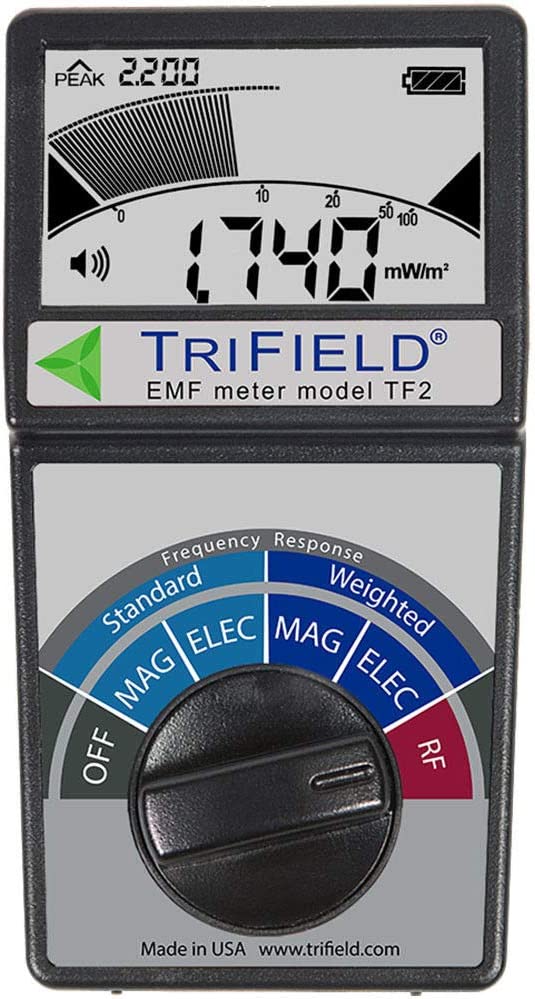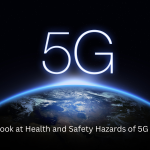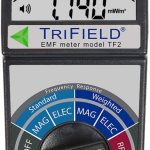New 5G (mmWave) meter
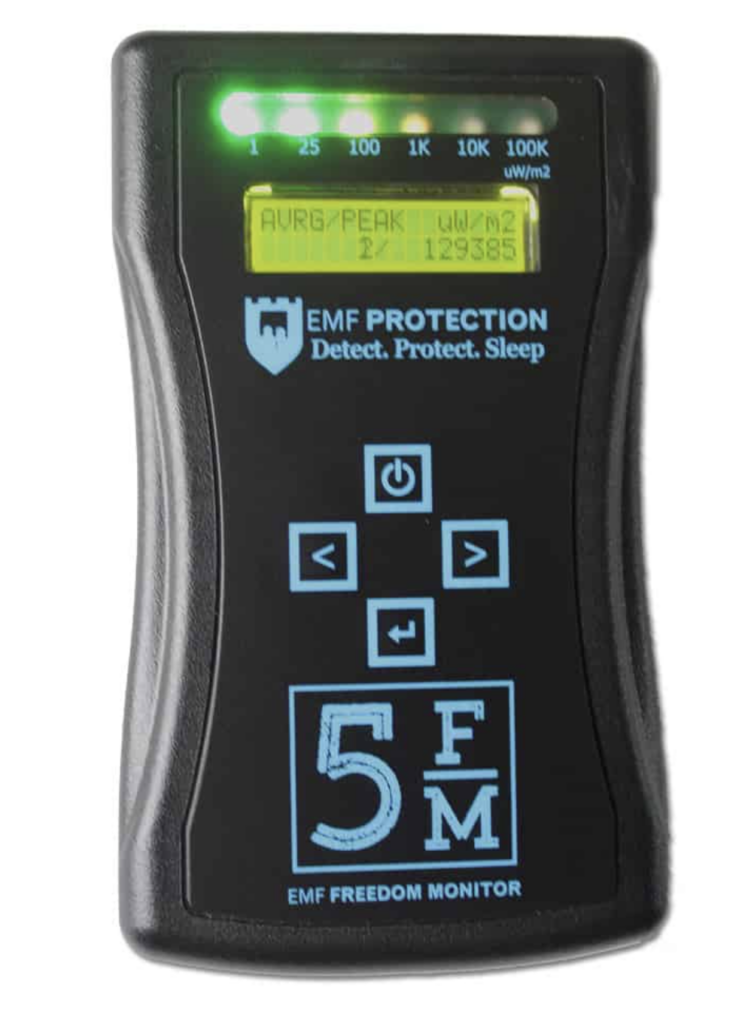
Although the NR2 spectrum has not been awarded/sold in the UK yet, there is concern that the higher frequency (mmWave) band is being used in certain areas.
This meter has thankfully come to market ahead of schedule and will be very handy in showing what is actually around, and at what power levels in the UK. There is particular concern around streetlight systems.
For purchase approx £960 for the unit and an antenna that can detect up to 32Ghz. The rental options are a nice touch. £45 for 30 days.
- Low frequency module frequency range 1 MHz to 10 Ghz
- Low freq. sensitivity 1uW/m2 to >100k uW/m2
- High frequency range 24 GHz to 32 Ghz.
- High freq. sensitivity 30uW/m2 to >100k uW/m2.
- Audio range 40Hz to 16kHz.
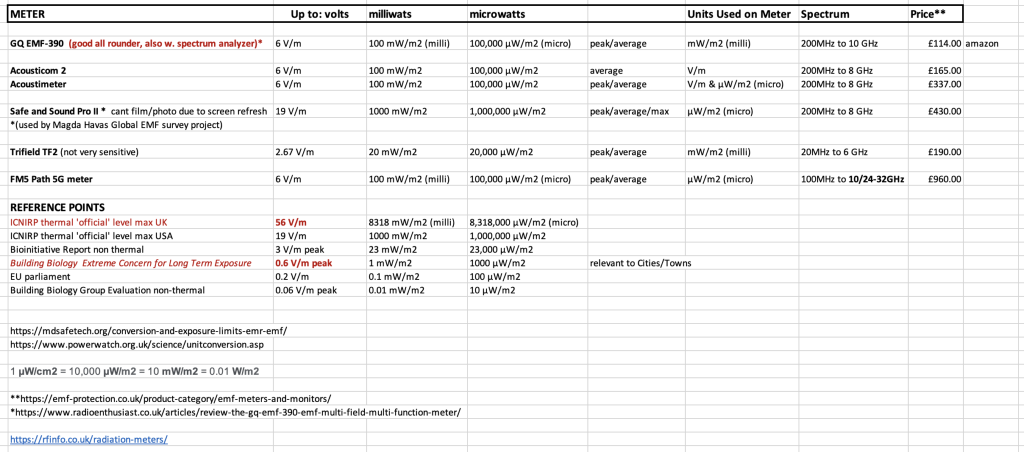
Useful page for Unit Conversion: https://www.powerwatch.org.uk/science/unitconversion.asp
Anything over 1m microWatts/m2 is too much
1 µW/cm2 = 10,000 µW/m2 = 10 mW/m2 = 0.01 W/m2
UK spectrum map, type your search terms: http://static.ofcom.org.uk/static/spectrum/map.html
Electromagnetic radiation detection meters

To hear and ‘see’ the EMF levels surrounding you, you can purchase a radio frequency meter such as an Acousticom 2. This will give you readings of the exposure levels in your home and street and enable you to pinpoint EMF hotspots.
This one shows a power density range of 0-6V/m (0.1W/m2) with a frequency range of 0.2-8 GHz which is sufficient for current UK spectrum which is up to 3.6Ghz. The other model Acoustimeter (shown below) also includes a power density scale in μW/m2 which can be useful as some guidance charts use only μW/m2.
The Acousticom 2 and Acoustimeter can be purchased from emf-protection.co.uk or other options from here.
The Safe and Sound Pro II is very good, and is used by the Magda Havas Global EMF survey and the UK National Residents Association surveys. The only snag is that the screen refresh is the same as a camera refresh rate and so you cannot take photos or videos of the readings.
This is a tri-field meter: up to 6Ghz, which is sufficient currently, but only measures up to 2.6 V/m (20mW/m2)
N.B. The above product links are options only rather than recommendations. Please do your own research. We hope to offer more guidance in purchasing and using meters at a later date.
Detection range and power density
A meter with a range up to 8 GHz will detect radio frequency radiation which is currently being used. The mmWave 5G at 24 GHz, 60 GHz, 90 GHz is being trialled in some areas but is not what mobile phone 5G currently works with.
Mobile phones operate between approximately 0.8 GHz and 2.6 GHz (4G), 3.4 GHz (5G), modems currently use 2 channels of 2.45 GHz and 5 GHz.
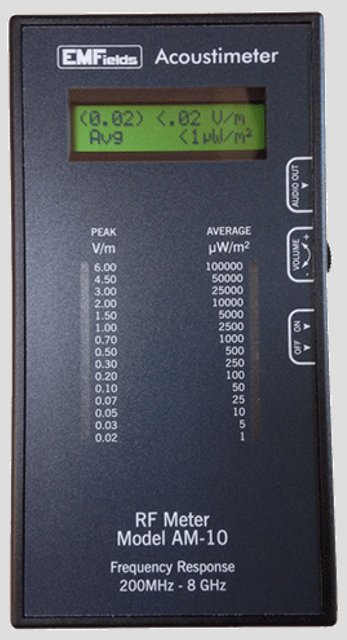
Power level
Home use meters like these go up to 6V/m because it is considered that any reading higher than that is unacceptable and so anything ‘in the red’ around 4-6 V/m is enough to demand attention.
The ICNIRP maximum safe exposure guideline, by contrast, is 56 V/m (10W/m2)! even though health effects are being reported as low as 0.06 V/m (10μW/m2). The EU parliament in 2001, however, recommended maximum public exposure levels of 0.2 V/m.
The German Building Biology Institute recommends no higher than 0.05 V/m (10 μW/m2) for only slight effects (though for electrosensitive people even less than this creates a problem), with severe effects set at 0.7 V/m (1000 μW/m2)
See also our Safe Levels page for more guidance and background.
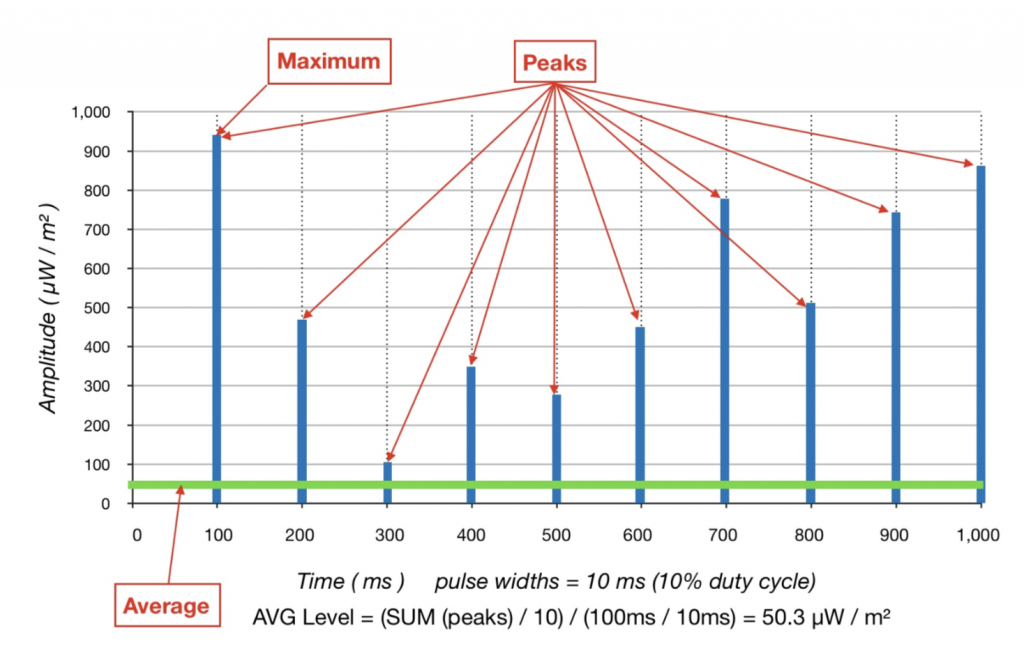
credit: www.safelivingtechnologies.com
This graphic shows the false impression that is given by AVERAGE readings. It is the Peaks in the rhythm of modulations and pulses that the body feels.


